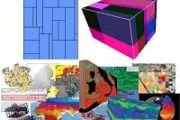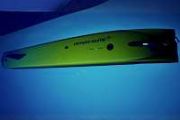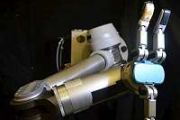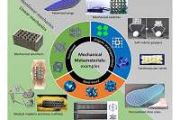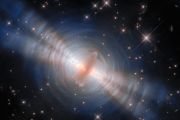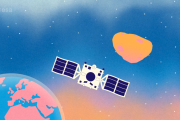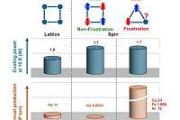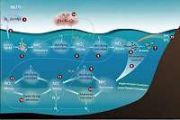
Copernical Team
ESA supports Moon mission carrying first European rover

Japanese lunar exploration company ispace will attempt to land its RESILIENCE spacecraft on the Moon no earlier than 5 June (CEST) 2025.
The European Space Agency’s (ESA) global network of ground stations is facilitating communication between the spacecraft and ispace mission control.
Click here to watch the ispace landing livestream in English.
China Adds Shijian 26 Satellite to Its Growing Remote-Sensing Fleet
 China launched its 33rd rocket mission of the year on Thursday, successfully placing a new remote-sensing satellite into orbit, China Aerospace Science and Technology Corp. announced. A Long March 4B carrier rocket lifted off from the Jiuquan Satellite Launch Center at 12:12 pm, carrying the Shijian 26 satellite to its preset sun-synchronous orbit at an altitude of 700 kilometers.
Jointly
China launched its 33rd rocket mission of the year on Thursday, successfully placing a new remote-sensing satellite into orbit, China Aerospace Science and Technology Corp. announced. A Long March 4B carrier rocket lifted off from the Jiuquan Satellite Launch Center at 12:12 pm, carrying the Shijian 26 satellite to its preset sun-synchronous orbit at an altitude of 700 kilometers.
Jointly Japan's dense GNSS network captures unprecedented 3D sound wave patterns after Noto Peninsula quake
 Earthquakes generate ripple effects in the Earth's upper atmosphere, which can disrupt essential satellite-based communications and navigation systems. A team at Nagoya University, in collaboration with others, has now used Japan's extensive GNSS receiver network to produce the first-ever 3D images of atmospheric disturbances caused by the 2024 Noto Peninsula Earthquake. Their findings, publishe
Earthquakes generate ripple effects in the Earth's upper atmosphere, which can disrupt essential satellite-based communications and navigation systems. A team at Nagoya University, in collaboration with others, has now used Japan's extensive GNSS receiver network to produce the first-ever 3D images of atmospheric disturbances caused by the 2024 Noto Peninsula Earthquake. Their findings, publishe Milky Way may not be destroyed in galactic smash-up after all
 The Milky Way may not have a catastrophic collision with another huge galaxy as has been predicted, computer simulations revealed Monday, giving our home galaxy a coin-flip chance of avoiding destruction.
But don't worry either way: no galactic smash-up is expected for billions of years, long after our ageing Sun will have burnt away all life on Earth.
The Milky Way and the even-larger g
The Milky Way may not have a catastrophic collision with another huge galaxy as has been predicted, computer simulations revealed Monday, giving our home galaxy a coin-flip chance of avoiding destruction.
But don't worry either way: no galactic smash-up is expected for billions of years, long after our ageing Sun will have burnt away all life on Earth.
The Milky Way and the even-larger g Northrop Grumman Commits $50 Million to Firefly Aerospace to Drive Eclipse Medium Launch Vehicle
 Northrop Grumman Corporation has invested $50 million in Firefly Aerospace to accelerate the production of Eclipse, a medium launch vehicle the companies are developing together. Eclipse is advancing through flight hardware qualification, and more than 60 Miranda engine hot fire tests have already been conducted.
"Firefly is incredibly grateful for Northrop Grumman's investment that furthe
Northrop Grumman Corporation has invested $50 million in Firefly Aerospace to accelerate the production of Eclipse, a medium launch vehicle the companies are developing together. Eclipse is advancing through flight hardware qualification, and more than 60 Miranda engine hot fire tests have already been conducted.
"Firefly is incredibly grateful for Northrop Grumman's investment that furthe SpaceX launches more Starlink satellites into low-Earth orbit
 SpaceX early Tuesday launched a Falcon 9 rocket loaded with a batch of Starlink satellites into space from the East Coast.
The rocket launched at 12:43 a.m. EDT from Space Launch Complex 40 at Cape Canaveral Space Force Station in Florida.
The mission was to put a batch of 23 Starlink satellites, 13 of which have direct-to-cell capabilities, into low-Earth orbit, where they will
SpaceX early Tuesday launched a Falcon 9 rocket loaded with a batch of Starlink satellites into space from the East Coast.
The rocket launched at 12:43 a.m. EDT from Space Launch Complex 40 at Cape Canaveral Space Force Station in Florida.
The mission was to put a batch of 23 Starlink satellites, 13 of which have direct-to-cell capabilities, into low-Earth orbit, where they will Intelligent Control System Enhances Space Reactor Performance under Uncertainty
 Researchers from the University of South China, Tsinghua University, and the Technical University of Munich have developed an advanced uncertainty model and intelligent control system that improves the responsiveness and adaptability of space nuclear reactors in complex environments. The new system boasts faster response times, higher control accuracy, and stronger adaptability to changing condi
Researchers from the University of South China, Tsinghua University, and the Technical University of Munich have developed an advanced uncertainty model and intelligent control system that improves the responsiveness and adaptability of space nuclear reactors in complex environments. The new system boasts faster response times, higher control accuracy, and stronger adaptability to changing condi Traveling to Mars and Ceres using Lunar Gateway as a springboard
This request seems a bit unusual, so we need to confirm that you're human. Please press and hold the button until it turns completely green. Thank you for your cooperation!
Press and hold the button
If you believe this is an error, please contact our support team.
185.132.36.159 : 519aba1e-722c-4ced-b3eb-5a687211
Trump wants $1 billion for private-sector-led Mars exploration
This request seems a bit unusual, so we need to confirm that you're human. Please press and hold the button until it turns completely green. Thank you for your cooperation!
Press and hold the button
If you believe this is an error, please contact our support team.
185.132.36.159 : 3d7435ff-3b9f-4471-b066-d4c1cff5
SpaceX scoops up another national security launch while ULA faces scrutiny
This request seems a bit unusual, so we need to confirm that you're human. Please press and hold the button until it turns completely green. Thank you for your cooperation!
Press and hold the button
If you believe this is an error, please contact our support team.
185.132.36.159 : 2632c7f0-75f6-479c-8696-f5b2502d



